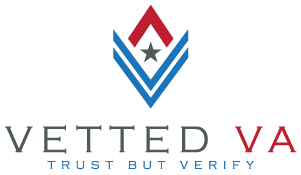Understanding the VA Loan Estimate
Why the Loan Estimate Matters
The Loan Estimate (LE) is a standardized, three-page document that gives you a clear picture of your VA loan offer — before you commit.
Every lender must provide a Loan Estimate within three business days of receiving your loan application. It outlines your loan terms, estimated costs, and total cash needed at closing, helping you compare offers and avoid surprises.
Reference: Consumer Financial Protection Bureau (CFPB) – Loan Estimate Explainer
Reference: VA Lender’s Handbook, Chapter 8 – Loan Closing and Settlement Charges
Page 1 – Loan Terms and Monthly Payment
The first page of your Loan Estimate shows the core details of your mortgage:
-
Loan Term: How long you’ll repay the loan — typically 15 or 30 years.
-
Loan Amount: The total borrowed, not including taxes, insurance, or HOA fees.
-
Interest Rate: Fixed or adjustable.
-
A fixed rate stays the same for the life of the loan.
-
A floating (unlocked) rate can change until you lock it.
-
-
Monthly Principal & Interest: Your base loan payment, before taxes and insurance.
-
Type of Loan: Conventional, FHA, or VA.
For VA loans, you’ll also notice:
-
No prepayment penalty. Veterans can make extra payments or pay off the loan early without fees (VA Handbook, Chapter 3, Section 1).
-
No balloon payment. VA prohibits loans requiring a large lump-sum payment at the end.
Below the main loan terms, you’ll see Closing Costs and Cash-to-Close.
⚠️ Don’t panic if the closing cost number looks high — that’s not the amount you need to bring to the table. The Cash-to-Close number below it reflects your true out-of-pocket total after credits, deposits, and prepaids are applied.
Pro Tip: Always ask your lender for a fee worksheet that itemizes every line so you can verify the math.
Page 2 – Closing Costs and Cash-to-Close
Page 2 breaks down exactly where your money is going.
It’s divided into several sections:
-
Loan Costs – includes lender fees, origination charges, and appraisal costs.
-
Other Costs – includes taxes, insurance, title fees, and prepaid interest.
-
Total Closing Costs – combines the above, minus any lender or seller credits.
Then, at the bottom, you’ll see:
-
Estimated Cash-to-Close: The total amount due at closing after factoring in all credits, deposits (like earnest money), and prepaids.
This section helps you confirm whether the lender’s estimates align with your Purchase Contract and Closing Disclosure (CD) later.
Reference: VA Handbook, Chapter 8, Section 2 – Fees and Charges the Veteran May Pay
Page 3 – Comparing Loans and Next Steps
Page 3 helps you evaluate whether this is the right loan for you.
It includes:
-
Comparisons: Shows how much principal you’ll have paid off after 5 years and your Total Interest Percentage (TIP) — the total interest you’ll pay over the life of the loan.
-
Annual Percentage Rate (APR): Reflects the interest rate plus certain fees to show the loan’s real cost.
-
Other Considerations: Lists key features such as appraisal requirements, assumption rules, and late payment details.
For VA loans, this section is also where you’ll confirm whether your VA funding fee is included in the total. Veterans with qualifying service-connected disabilities are exempt from the funding fee (VA Handbook, Chapter 8, Section 8).
Before you sign, always:
✅ Compare the Loan Estimate to your final Closing Disclosure.
✅ Confirm your rate lock status and loan amount.
✅ Ask questions early — before the closing date.
Key Takeaways
-
The Loan Estimate is a three-page summary of your loan terms and costs.
-
Page 1 covers loan basics and cash-to-close.
-
Page 2 shows cost breakdowns and credits.
-
Page 3 helps you compare offers and verify accuracy.
-
VA loans have no prepayment penalties and protect veterans from unfair fees.
Reading this document closely — or reviewing it with a Vetted VA professional — ensures you know exactly what you’re agreeing to.
Where to Get Trusted Help
Need help reviewing your Loan Estimate?
Connect with a Vetted VA representative who can walk through your numbers line by line, explain any confusing fees, and ensure you’re getting a fair deal.
Visit Vetted VA to find verified VA loan professionals in your area.
VA Loan Estimate Page 2 closing costs.
This usually consists of two columns. The left side of the page are the closing costs and the right side has other details, like escrow and interest. The closing costs are probably the most critical part of the loan estimate. A lot are common, like title insurance and appraisal fees. Many are heavily regulated, so there’s not much to worry about being overcharged. For example, C&P (Compensation and Pension) Claims.
If you’re being med-boarded, the fee can be exempted before discharge since you’ll get a rating before leaving the service. Take that paperwork with the rating to your loan officer who will submit it to the VA portal. Then they will manually exempt you from the fee based on your certificate of eligibility. If you are starting your application process after you’ve separated it’s going to take some time until your rating is approved. If you close on your mortgage during that time, the funding fee will be collected at closing.
Once your disability rating is granted you can go back to the regional loan center and get a refund. It’s a nice chunk of money. Since the average home cost is 385,000 a 2.1% funding fee would be $7,700.
Left Side
On the left side column, you will see Box A (Origination Charges), Box B (Services You Cannot Shop For), and Box C (Services You Can Shop For). Box A is where lenders are shopping for loan officers. You want to look at the interest rate and Box A. You might see one with an interest rate and no fees and another with a lower rate and more fees. However, the interest rate doesn’t tell the whole story. You’ll have to compare the fees involved.
Box B lists the costs of the application fee, the underwriting fee, and the originator compensation and lender fees. The appraisal is set by the VA and you can’t choose your appraiser or even the company. That’s why it’s in Box B since it’s set and standardized and regulated. The buyer can declare who they’re going to use for title and escrow, but there are so few title and escrow companies it isn’t going to differ too much. It comes down to follow-up and communication. If you don’t like the prices of title and escrow, you’re better off complaining to your congressman. If you’re shopping around, Box C is the one to mainly be looking at.
Right Side
The right column will be the same no matter what loan officer you’ll be working with. But you’ll still want to look at them closely since some lenders will try and make their costs look lower and can vary by state. The lender’s title insurance is going to be required. Both protect either you or the lender in the event something happens in the future with the title. For example, this can be a deed that was recorded that wasn’t caught in the original title search or if someone makes a claim on the property. These are things that do happen and can be very bad and expensive, so insurance is usually recommended.
This is a one-time fee. If you refinance, you will have to pay a lender’s title insurance again, but not owner’s title insurance. Some have lender credits but have a lot of extra fees. You need to look at those numbers and compare them. There is a good consumer finance CFPB put out a loan estimate guide which breaks this down point by point. It’s a great resource: https://www.consumerfinance.gov/complaint
Please be aware that the process gets trickier when doing a “By Owner” sale.
VA Loan Estimate Page 3 Closing Cost
It’ll break down the total interest in five years and compare that to the principal that you would have paid off at the beginning of the mortgage. Most of the money goes to interest at this point. Over time the amount towards interest decreases and the amount towards the principal increases.
It also shows the APR (annual percentage rate) but not every lender has the same thing as an APR, so it can be an inaccurate way to compare loan estimates. A better way is to look at the percent on the first page and look at the fees, lender credits, and the total interest percentage over the life of the loan.
The way interest rates are calculated can vary from one institution to another. For example, you could have a quote from one loan officer that’s lower in costs because they have a large credit, but the APR is higher. It often throws people off.
Finally, there are some housekeeping and appraisal details. It also has the specifics about assuming a VA loan. This is when someone else takes over the loan they qualify for with the same terms as what was originally done. It also has the required homeowner’s insurance to protect you and the property. Mortgage insurance only protects the lender. That’s what’s great about the VA loan: it doesn’t require any mortgage insurance.
It also contains fees for late payments. Typically, there’s a fee if the payment is 15 days late which can cost $50 or $75. It won’t show up on your credit report since those are only reported after 30 days. It’s all based on the secondary market with mortgage-backed securities.
There’s not any lender that will service 100% of all your loan. It could just happen to fall into a bundle of loans that are being sold off.
The bottom line is that all the information on pages one and two are there to make good decisions. It’s still a bit confusing to many and not perfect, but it has improved a lot over the years and is laid out better than it used to be.





